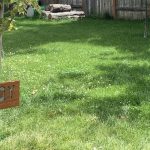Adapted from Chapter 1, “The Supermarket of Life.”
If we say the good life is a happy one, and what makes a person happy is freedom, and we define freedom as unlimited autonomy, then all our unlimited autonomy should create happy, contented people. But our unlimited autonomy isn’t bringing happiness; it’s producing stasis, exhaustion, and hurry.
David Brooks says it like this:
In a culture of “I’m Free to Be Myself,” individuals are lonely and loosely attached. Community is attenuated, connections are dissolved, and loneliness spreads. This situation makes it difficult to be good—to fulfill the deep human desires for love and connection. It’s hard on people of all ages, but it’s especially hard on young adults. They are thrown into a world that is unstructured and uncertain, with few authorities or guardrails except those they are expected to build on their own.
Our freedom narrative in the West—choosing your own destiny according to your own sense of autonomous freedom— is leaving us at sea in endless choice. We are lonely, exhausted, and unsure what success or joy even looks like anymore.
The gospel is the good news that Jesus’ life, death, resurrection, and ascension accomplish for us what hustle and hurry never can. We do not have to push past limits to earn our perfection before a holy God; instead, God comes near, taking on our human limits to bring us into relationship with himself. When we place our trust in him, he exchanges our sin and shame for his beloved perfection. But how do we get that goodness in us? It starts by replanting ourselves in this better story.
Whether or not we call ourselves Christians, most of us do not practically live out this better story, the one lived under the rule and leading of Jesus. The good news of Jesus takes a stick of dynamite to our carefully ordered, autonomous lives on the right and the left, so that we’re forced to reckon with this reminder from Fleming Rutledge: “If the kingdom of heaven is at hand, as John the Baptist says, then all our other kingdoms are called radically into question, including my own private kingdom, and yours.” We are not the monarchs of our own lives.
Freedom is not simply freedom from constraints but for something—for love. Jesus models for us what this freedom for the sake of love looks like: for those who come weary and worn to Jesus, it looks like healing. It tastes like bread in hungry bellies and brings a justice and peace deeper than what a full bank account could offer. The freedom Jesus holds out is an entrance into something more beautiful than simply being turned loose in the condiment aisle or asked to curate our own lives. Limits are good.
Wait, I can hear you asking, limits are . . . good, full stop? Like, not just something to push past or knock down? If you’re a bit skeptical, perhaps you can relate to a conversation I had with my neighbor who, when I told her limits were good, guffawed: “You mean I don’t have be good at it all—building multiple businesses and have them firing on all cylinders, volunteering in my twins’ kindergarten class, all while caring for my partner who has just been diagnosed with cancer?” “No, you don’t,” I told her. “You can be human.”
These good, God-given limits are for all people in all times and places, not the sorts of societal limits imposed on others to oppress or silence. As God’s creatures made in his image, we are all limited by our bodies, by our personalities, by our places, by our circles of relation, and by those for whom we are responsible. We are limited in our power and authority and by particular seasons of work, health, and faith. We are limited in our time, our attention, and our calling. Our God-given limits are the doorway into a more spacious life.
What might happen if we tried embracing our limits as gifts for our flourishing rather than barriers to our success? I think we’d find we were beginning to walk in the way of Jesus.
But what does this look like? It looks like love and feels just as disorienting. The missiologist Lesslie Newbigin wrote:
“True freedom is not found by seeking to develop the powers of the self without limits, for the human person is not made for autonomy but for true relatedness in love and obedience; and this also entails the acceptance of limits as a necessary part of what it means to be human.”
Limits remind us we are but dust. Limits remind us too that we are made in God’s image, “lower than the angels,” the fragile and glorious crown of creation (Heb 2:7). We are made by Love for love, and love joyfully accepts constraints in order to love others particularly and fully.
If you’re a bit like Augustine, that patron saint of restless souls, and you’re realizing that “the loss of guardrails only meant ending up in the ditch, [and] you start to wonder whether freedom is all it’s cracked up to be—or whether freedom might be something other than the absence of constraint and the multiplication of options,” I invite you along for the journey.
The doorway feels a little tight at first, but if today you’re burned out from hurry and hustle, or you find yourself crushed under the weight of the “free” identity you must endlessly create, may I offer you another way? There is a spacious life waiting for you inside the narrow gate.
The only person who is both perfect and limited is Jesus. As fully God and fully human, Jesus shows us how to embrace our limits under the loving reign of God, condescending as he does to leave heavenly glory to come to his creation as a human. All aspects of his coming—from his birth to his death and resurrection— were acts of particular love.
Duck your head and walk through the narrow gate. Jesus is not only our good shepherd leading the way to an abundant life, but he is also the gate: “I am the gate; whoever enters through me will be saved. They will come in and go out, and find pasture” (Jn 10:9 NIV). Just beyond is that pastureland you seek. Journey into internal landscapes. Here is a more spacious life.
Adapted from A Spacious Life by Ashley Hales. Copyright (c) 2021 by Ashley Hales. Published by InterVarsity Press, Downers Grove, IL. www.ivpress.com







